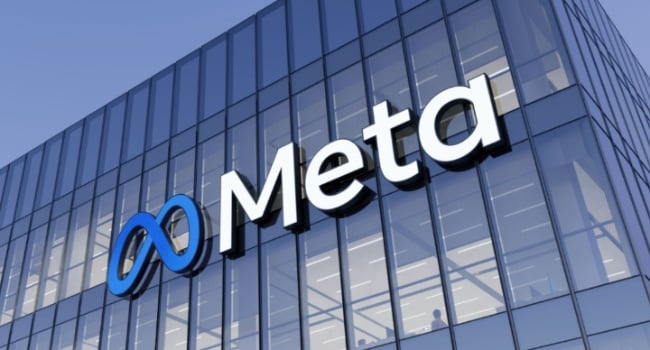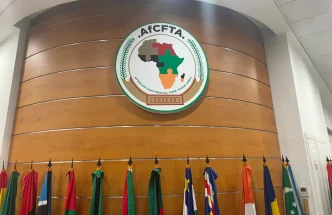BY MICHAEL DUGERI
Big Tech will do almost anything to avoid accountability. Major technology firms have often adopted a defensive posture when faced with regulatory enforcement. Rather than immediately engaging with oversight efforts, the typical response involves legal challenges, sustained lobbying, and public messaging aimed at shaping the narrative—sometimes portraying regulation as uninformed, excessive, or harmful to innovation. When these efforts are unsuccessful, the approach may become more assertive. That appears to be the situation in Nigeria today, where Meta has indicated it may withdraw Facebook and Instagram services following the imposition of regulatory fines totalling over $290 million. Such a move raises important questions about the balance between business interests and the authority of national regulators.
It is important, however, to interpret this development in its proper context. While concerns about regulatory unpredictability or overreach can be legitimate in many developing economies, that should not obscure the broader picture in this case. Nigeria’s enforcement actions—rooted in laws on data protection, competition, and advertising—are not outliers in the global regulatory landscape. They reflect an effort to align the country’s digital governance with evolving international norms and to ensure that powerful digital platforms operate transparently and responsibly. Recognizing the legitimacy of this effort is key; regulation, when fairly and consistently applied, is not an impediment to investment—it is often a precondition for trust, stability, and long-term market confidence.
Meta’s latest move follows a series of regulatory actions in Nigeria. Three national agencies—the Federal Competition and Consumer Protection Commission (FCCPC), the Advertising Regulatory Council of Nigeria, and the Nigeria Data Protection Commission (NDPC)—have imposed fines totalling over $290 million on the company. These sanctions relate to alleged anti-competitive behaviour, non-compliance with advertising regulations, and breaches of data protection laws. In response, Meta not only contested the fines in court (and lost) but is now threatening to shut down Facebook and Instagram in Nigeria, calling the regulatory expectations “unrealistic” and the legal interpretation of data laws “misguided.”
Advertisement
But this is not just a legal dispute—it is a calculated act of brinkmanship. Meta’s warning that Nigerians could lose access to Facebook and Instagram is a thinly veiled attempt to stir public outrage and pressure the government into retreat. This tactic mirrors a broader pattern seen globally: when challenged, Big Tech routinely portrays regulation as a threat to users, rather than a mechanism for accountability.
This is neither new nor isolated. In Australia, Meta blocked access to news on its platform in retaliation against legislation requiring it to pay publishers. In Canada, it took similar action when the government introduced its Online News Act. In both cases, Meta was betting on user dependence to force governments into compromise. In the EU, where the Digital Services Act and Digital Markets Act are reshaping the regulatory landscape, Meta and its peers are said to be investing heavily in lobbying and legal resistance. It is a global playbook: avoid the rules, shift the narrative, and frame democratic oversight as unreasonable interference.
The regulatory standards at the heart of this dispute are neither novel nor arbitrary. In Nigeria, the laws that Meta is being asked to comply with—covering competition, advertising practices, and data protection—are designed to safeguard consumers, promote fairness in the digital economy, and ensure responsible corporate behaviour. These are not unique to Nigeria; similar frameworks exist in jurisdictions around the world, reflecting a global consensus that digital platforms must operate within clear and enforceable rules.
Advertisement
Meta, like many large technology companies, has faced scrutiny in the past over its handling of data, content moderation, and advertising transparency. Incidents such as the Cambridge Analytica revelations, concerns about misinformation, and challenges around algorithmic accountability have prompted important discussions globally about the responsibilities of digital platforms. In this context, it is not unreasonable for Nigerian regulators to seek greater clarity, transparency, and alignment with national standards. Ensuring that powerful actors operate within the law is a necessary part of building public trust in the digital space.
Nigeria must approach this moment with clarity and resolve. What is at stake is not simply a dispute over fines, but the broader principle of lawful governance in an increasingly digital society. History has shown that effective regulation—whether in energy, telecommunications, pharmaceuticals, or other vital sectors—often meets resistance from powerful interests at first, only to prove essential in safeguarding public welfare, enabling fair competition, and ultimately creating a more stable environment for investment and innovation. When governments maintain a consistent regulatory posture, they not only protect citizens but also offer businesses the predictability and legal certainty they need to thrive.
Backing down under pressure, especially from a dominant foreign actor, would risk setting a troubling precedent. It could erode the credibility of Nigeria’s legal institutions and send a message that market size and corporate influence are sufficient to override national laws. That would not just weaken the government’s ability to regulate digital platforms, but also make it more difficult to enforce standards in other key sectors. Constructive engagement should always be welcome—but that must occur within the bounds of the law, not outside it. Upholding clear, fair, and enforceable rules is ultimately in everyone’s interest, including responsible businesses that seek to operate in a stable and rules-based environment.
Nigeria represents a significant and dynamic market for Meta, both in terms of user base and the broader potential of its digital economy. With tens of millions of active users and a growing ecosystem of online businesses, developers, and content creators, Nigeria is far from peripheral. It is commercially important and strategically relevant to any global technology company. In that context, compliance with local laws should not be viewed as an obstacle, but as a normal and necessary aspect of doing business in any sovereign jurisdiction. Just as Meta has adapted to regulatory frameworks in the European Union and other major markets, there is every reason for it to engage constructively with Nigerian institutions.
Advertisement
This moment should not be seen simply as a regulatory dispute, but as part of a wider effort by African states to build credible governance structures for the digital economy. The ability to enforce national laws—consistently, transparently, and fairly—is foundational to any functioning regulatory system. It is also essential to ensuring trust in digital platforms, protecting users, and fostering long-term investment. Nigeria has an opportunity here to demonstrate that regulatory integrity and international business need not be at odds. Firm but principled enforcement of the law, combined with openness to dialogue, can reinforce both national sovereignty and a stable environment for innovation.
Views expressed by contributors are strictly personal and not of TheCable.










